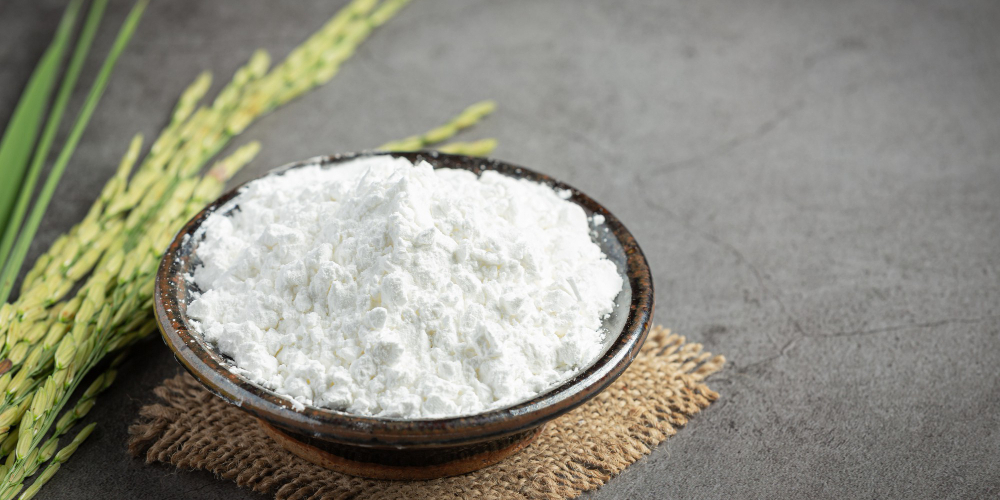Latest
Guillain-Barre Syndrome (GBS): What do we know so far?
First Check spoke to Dr Priyanka Sehrawat, MD Medicine, DM Neurology (AIIMS Delhi), currently working as senior Neurologist at The Neuromed clinic, Gurgaon and Narayan Heart and Neuro Hospital in Bahadurgarh, to shed more light on the disease, its causes and the implications.
Author

Sneha Richhariya is a reporter based in New Delhi, India. Her work focuses on health, environment and gender. She is the recipient of UN Laadli Media Award 2024 and Human Rights and Religious Freedom (HRRF) Award 2023. She has received fellowships from Internews Earth Journalism Network, Health Systems Transformation Platform (HSTP), Deutsche Welle Hindi, Report for the World and National Coalition for Natural Farming (NCNF). She has written for organisations like Deutsche Welle, Scroll, Mongabay India, South China Morning Post (SCMP), Newslaundry, Himal Southasian, The Third Pole, The Quint, IndiaSpend and Article 14.
View all posts
Author

Sneha Richhariya is a reporter based in New Delhi, India. Her work focuses on health, environment and gender. She is the recipient of UN Laadli Media Award 2024 and Human Rights and Religious Freedom (HRRF) Award 2023. She has received fellowships from Internews Earth Journalism Network, Health Systems Transformation Platform (HSTP), Deutsche Welle Hindi, Report for the World and National Coalition for Natural Farming (NCNF). She has written for organisations like Deutsche Welle, Scroll, Mongabay India, South China Morning Post (SCMP), Newslaundry, Himal Southasian, The Third Pole, The Quint, IndiaSpend and Article 14.
View all posts
- admin / 6 months

- 0
- 8 min read

Pune is currently experiencing a surge in Guillain-Barré Syndrome (GBS) cases, a rare but severe neurological condition affecting the peripheral nervous system. On Sunday, the Maharashtra health department confirmed that the number of GBS cases in Pune surpassed 100, with one suspected death reported in Solapur.
The Director General Indian Council of Medical Research Dr Rajiv Bahl told news agency ANI, that the cases are under investigation as a team of experts have collected various samples, and the cause of the outbreak is unknown.
However, the Maharashtra Health Department has issued precautionary guidelines urged residents to maintain water quality by drinking boiled water and ensuring food hygiene. “Care should be taken to keep the water quality good. For example, drinking boiled water. Food should be fresh and clean. Infection can be avoided also by not keeping cooked and uncooked food items together,” read the department’s advisory, which goes on to urge people not to panic and to visit a government hospital in case of symptoms.
Considering that the disease has been dominating headlines, and stoking fear among people, First Check spoke to Dr Priyanka Sehrawat, MD Medicine, DM Neurology (AIIMS Delhi), currently working as senior Neurologist at The Neuromed clinic, Gurgaon and Narayan Heart and Neuro Hospital in Bahadurgarh, to shed more light on the disease, its causes and the implications.
Here are key excerpts from our conversation:
What has caused this sudden outbreak in the city, and are neighbouring districts also at risk?
GBS is an immune mediated illness, which means that there are certain antibodies that start self reacting. The antibodies are actually there to protect us from outside infections. But, due to certain causes these antibodies start acting on our own body cells- nerve fibres, for instance, in the case of GBS. In GBS, when the antibodies start acting against the nerve fibres, they start destroying the nerve fibres, and that’s how they can lead to weakness and tingling of the hands.
Now what causes these antibodies to form?
There are a number of causes, but the one major cause that actually leads to an outbreak, which we should be aware of and which is avoidable, are bacteria called campylobacter jejuni and E. Coli, which are usually found in contaminated food and water. So, if there has been an exposure to these bacteria, it could have led to this outbreak.
Although epidemiological studies and surveys are still on, to know the exact source of the current outbreak, and authorities have not confirmed anything yet, and we need to wait for them to confirm.
So, what exactly caused it needs confirmation; but what may cause it are these two bacteria.
You said that it maybe because of contaminated food or water, which is problem in many parts of the world, including parts of India. So how common are outbreaks like these in India, and have we seen an outbreak of similar nature before?
See, we used to see polio and cholera outbreaks, in earlier days… because we did not have water and stool purification processes, that’s why those outbreaks, came into picture. But now it is there because of our habits; including our increased eating out habits.
Now we have the water purification process and everything, but we are not using purified water. We are not washing the vegetables. We are using stale vegetables in hotels and restaurants because the demand is high.
We did not have a GBS outbreak here in India earlier. But eventhough GBS cases are rare, it is not unheard of; I think all neurologists have seen such cases during their career.
GBS cases keep on coming, but as an outbreak, it’s a thing that that is of concern, and that tells us that, yes, we need to make clean food a priority now.
Do you think there are other possible factors that might have contributed to it, or it’s difficult to say as of now?
One other factor is ‘Altered Immunity.’ What do I mean by altered immunity? So because GBS is a immune mediated illness, the antibodies that are supposed to protect us are not protecting us, but acting against our own body cells. That is the alteration of immunity. Now, why is that alteration happening? The alteration in the immune response can occur due to somatic mutations, environmental factors, or low immunity.
When an infection occurs, a strong immune system can effectively fight it off using existing antibodies, preventing the formation of new ones. However, in individuals with weakened immunity, the body struggles to combat the infection. In response, it produces a large number of new antibodies. Among these, 5–10% may malfunction, mistakenly attacking the body’s own nerve cells instead of just the infection. This misdirected immune response can lead to Guillain-Barré Syndrome (GBS).
So, immunity also matters a lot, and eating up vitamins, having some natural seeds for omega-3 and antioxidants, and exercising, are important. Exercise is still the best immunity booster and the best probiotic also. So exercising and making these changes in your lifestyle really matters.
What are the primary diagnostic methods that we can use to identify GBS? Is there a way to quickly identifying patients?
When we talk about diagnosis, we have two parts in the diagnosis. One is clinical features that the patient presents with, and second is the investigation.
If we talk about clinical features, GBS is a very rapidly progressing illness. It usually starts with weakness and tingling in the limbs, where you are not able to get up from chair, or you need support while getting up from your washroom seat. Your grip goes weak. You’re not able to take things out from the shelf. So you feel weak. Weakness in hands, tingling in hands, paraesthesia, pins and needles sensation, and current like sensation are all possible symptoms.
Now when you go to the neurologist, there’s a diagnostic investigation that we do to diagnose or rule out GBS, called a nerve conduction study. In the nerve conduction study, we look for the conduction electrical impulses through the nerve fibres, and how the current is moving. Is the amplitude okay? Is the current movement okay? Are the nerve fibres functioning well? If GBS causes damages to the nerve fibres, we see signs of demyelination in the nerve conduction study or the nerve conduction velocity test itself.
In patients with mild versus severe cases, what differentiates the progression of the disease?
It also depends on the patient profile, and whether the patient has any comorbidities— patients with diabetes, liver disease, liver cirrhosis, chronic kidney disease, or are on dialysis. Pregnant females, children less than 5-year-old, and the elderly more than 65-year-old are also patients who have lower immunity who are not able to fight off infections or even immune mediated illnesses. These are the patients that are more at more risk of having a rapid progression.
Lung disease is also an important factor. If the lungs are not working fine, the muscles get affected, and then the fibres get affected earlier.
These are the general things that usually tell us if patient may be rapidly progressive and if they need to be treated on priority.
Medically speaking, to lower the risk of such outbreaks in future, are there any immunizations or other preventive interventions that can help?
Immunization usually helps in infective cases. But it is actually a post infectious immune mediated illness. It is caused by antibodies. So, we cannot have a vaccination for an immune mediated or an autoimmune illness. So, immunization will not help in a patient of GBS.
GBS can be triggered by various infections, with Campylobacter jejuni and E. coli being the most common causes. While we have vaccinations for infections like rotavirus, which is a common gut virus, hepatitis B, measles, etc, Campylobacter jejuni, E. coli and other GBS triggering infections are not as prominent or prevalent that we can have a vaccine against it. It is not the kind of bacteria against which a vaccine can be made.
And GBS being an immune mediated illness cannot be prevented by immunization, but can be prevented by taking care of our lifestyle.
Also read: Does White Coat Syndrome Affect 80% of BP Patients?










